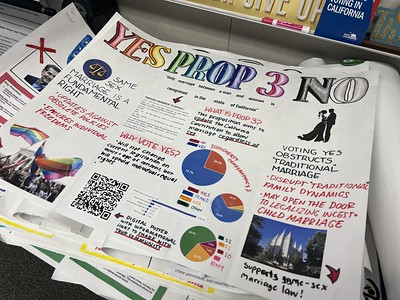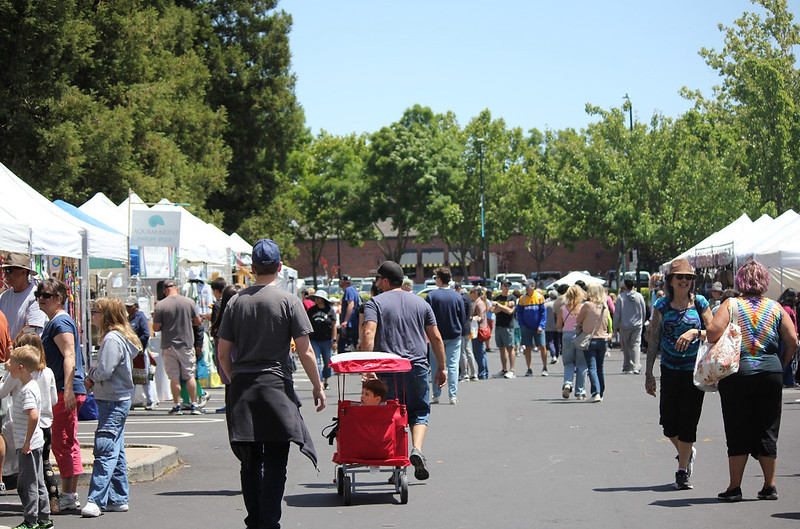
The 2024 election ballots cover California’s propositions. Each of the propositions presents a unique solution to ongoing social, economic, and environmental issues. Here is an overview.
Proposition 2
Proposition 2 would enact a bond intended to raise $8.5 billion for California’s primary and secondary schools and $1.5 billion for community colleges to upgrade school facilities or renovation. This ensures that all students have equal access to education. Furthermore, the increase in natural disasters demands the need for higher-quality facilities, such as air filters because of the wildfires. Consequently, this refurbishment also comes at the cost of taxpayers. Proposition 2, if passed, would add $500 million in costs to the state per year for the next 35 years.
“I think that Prop 2 could help a lot of schools and kids. It’s important to have good infrastructure and facilities for us to learn and I think the money is going towards a good cause,” Senior AP Government Student Anshika Kapoor stated.
Proposition 3
Proposition 3 amends the state Constitution to codify the right to same-sex marriage, and also revokes Proposition 8, which was passed in 2008 and banned same-sex marriage by only recognizing marriage between one man and one woman. Afterwards, it was overturned in 2013 in the Hollingsworth v. Perry case, which re-legalized same-sex marriage in Calif.
A formal proposal to repeal Proposition 8 was passed in July 2023 and the vote will happen during this year’s elections. Proposition 3 reaffirms California’s dedication to protecting the rights of all residents and also protects the right of same-sex marriage from future shifts in federal policy. Currently, there is no predicted cost to the state for this change.
Senior AP Government Student Keira Lum, argued against Proposition 3, stating that “While [Proposition 3] will make it feel more formalized, it won’t really change anything. We would kinda be a waste of manpower since same-sex marriage would still be allowed without this proposition.”
Proposition 4
Due to the increased number of natural disasters in Calif., Proposition 4 proposes issuing $10 billion in bonds for climate infrastructure projects, such as water safety and wildfire prevention. Additionally, the funds would also address issues such as extreme heat, drought, and air pollution. If passed, Proposition 4 would cost the state approximately $400 billion dollars per year, for the next 40 years.
“Climate change is something we should take care of as we are living on earth. However, I also believe that we should find another source of funding besides taxation. $10 billion will raise taxes, which will increase inflation,” Lum said while taking the affirmative side.
Proposition 5
Because of California’s high cost of living, Proposition 5 proposes to lower the percentage of voters needed to pass bonds for affordable housing and community projects; instead of the current two-thirds threshold, local bonds could be passed with 55% approval. Proposition 5 is intended to promote more sustainable and affordable living options for residents, especially those in low-income areas.
“Proposition 5 will empower local governments to address immediate priorities without having to wait for state and federal funding,” KQED, a public media organization in the San Francisco Bay Area, included in its “Yes” argument.
Proposition 6
Proposition 6 seeks to ban forced work as a punishment in state prisons. Those who support the proposition argue that forcing prisoners to take dangerous, demeaning, or exhausting jobs as a form of punishment is a modern version of slavery. In contrast, opponents argue that it would take more effort to find people for the work that inmates turn down, and that convicted criminals need harsher forms of punishment to fit their crimes.
According to KQED, “If incarcerated people turn down work assignments, prisons would have to spend more money to hire people to cook or clean. Inmates are supposed to be paying their debt to society while incarcerated, and taxpayers should not have to assume a greater burden to fund prison chores.”
Proposition 32
Proposition 32 would raise the minimum wage to $17 per hour next year for businesses with 25 or fewer employees, and raise it immediately for companies for 26 or more employees. If passed, the minimum wage will go up to $18 for all businesses in Calif. in 2026.
On one hand, supporters argue that passing this proposition would lead to an increase in jobs and a boost in the economy. On the other hand, opponents argue that it raises the cost of living in Calif. by forcing businesses to raise their prices in order to compensate for the higher payroll costs.
Opponents fear that an increase in minimum wages will lead to fewer jobs and increased unemployment as business owners close or move to other states to avoid the increased cost.
“I think that Prop 32 should be passed and that the minimum wage really needs to be increased. The current minimum wage doesn’t account for inflation over the past several years. I think it would help a lot of people pay for basic necessities and help our community,” Kapoor argued.
Proposition 33
Proposition 33 addresses another aspect of California’s economy: rent. In 1995, the Costa-Hawkins Rental Housing Act was passed to prohibit cities from enacting rent control laws for single-family homes, condominiums, and any properties built after 1995. Proposition 33 would nullify this law and allow cities to implement their own rent control. Supporters claim this proposition lowers the rent burden on Calif. residents, whereas opponents claim it will decrease the housing supply by discouraging new home building.
“Rent restrictions would decrease house building and increase the money people would have to spend to buy the house. It also increases inflation because building owners have to start finding different income sources, like they would have to increase prices of a store they own, and renters have to spend more money to buy things,” Lum proclaimed while supporting the “No” argument.
Proposition 34
Proposition 34 would restrict how nonprofits, specifically the AIDS Healthcare Foundation (AHF), and healthcare providers spend their revenue earned from the sales of prescription drugs.
Currently, federal laws permit certain health providers in low-income areas to buy drugs at a discount in order to earn profits by selling them at retail prices. For example, Michael Weinstein, the President of AHF, used the profits from these medicine sales to lobby for housing rights, such as helping to fund the campaign Proposition 33 mentioned above.
Opponents claim that Proposition 34 is a “revenge” initiative being put forward by wealthy landlords and realtors, all designed to silence organizations like AHF and punish them for supporting rent control.
“Proposition 34 would help federal funding go where it was intended to in this foundation [AHF], towards medication for low-income people, so I think it would help our community,” Kapoor stated.
Proposition 35
Proposition 35 focuses on an existing tax used to pay for the Medi-Cal program, which is California’s insurance program for low-income residents. Medi-Cal has been partially funded through taxing managed-care organizations (MCOs) like Anthem Blue Cross and Kaiser Permanente. This tax is set to expire in 2026, but Proposition 35 aims to make the MCO tax permanent. If passed, this proposition is projected to raise California’s spending on Medi-Cal by $1-2 billion annually, but is expected to be offset by a $2-5 billion increase in state revenue.
Proposition 36
Proposition 36 repeals Proposition 47 from 2014 (which classified certain crimes as misdemeanors instead of felonies), and establishes stricter penalties in terms of prison sentences for crimes related to theft and drug possession. Certain cases would be charged as felonies and treatment programs would be given rather than incarceration for individuals possessing drugs. State costs for prisons are expected to increase anywhere from millions to hundreds of millions of dollars, depending on crime rates.
“I think Prop 36 would help our communities because it would reduce drug possession and a lot of thefts. A lot of drug courts would be reinstated and there would be a lot more treatment available for addicted people,” Kapoor affirmed.





